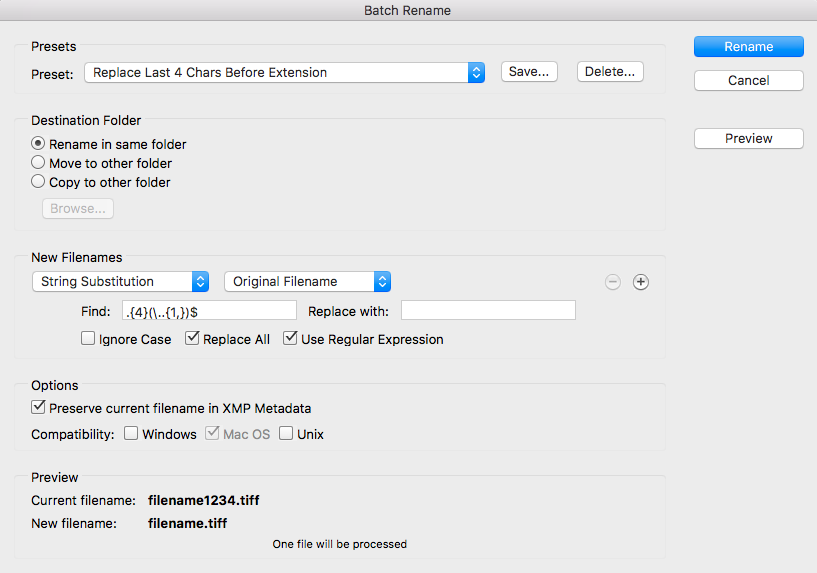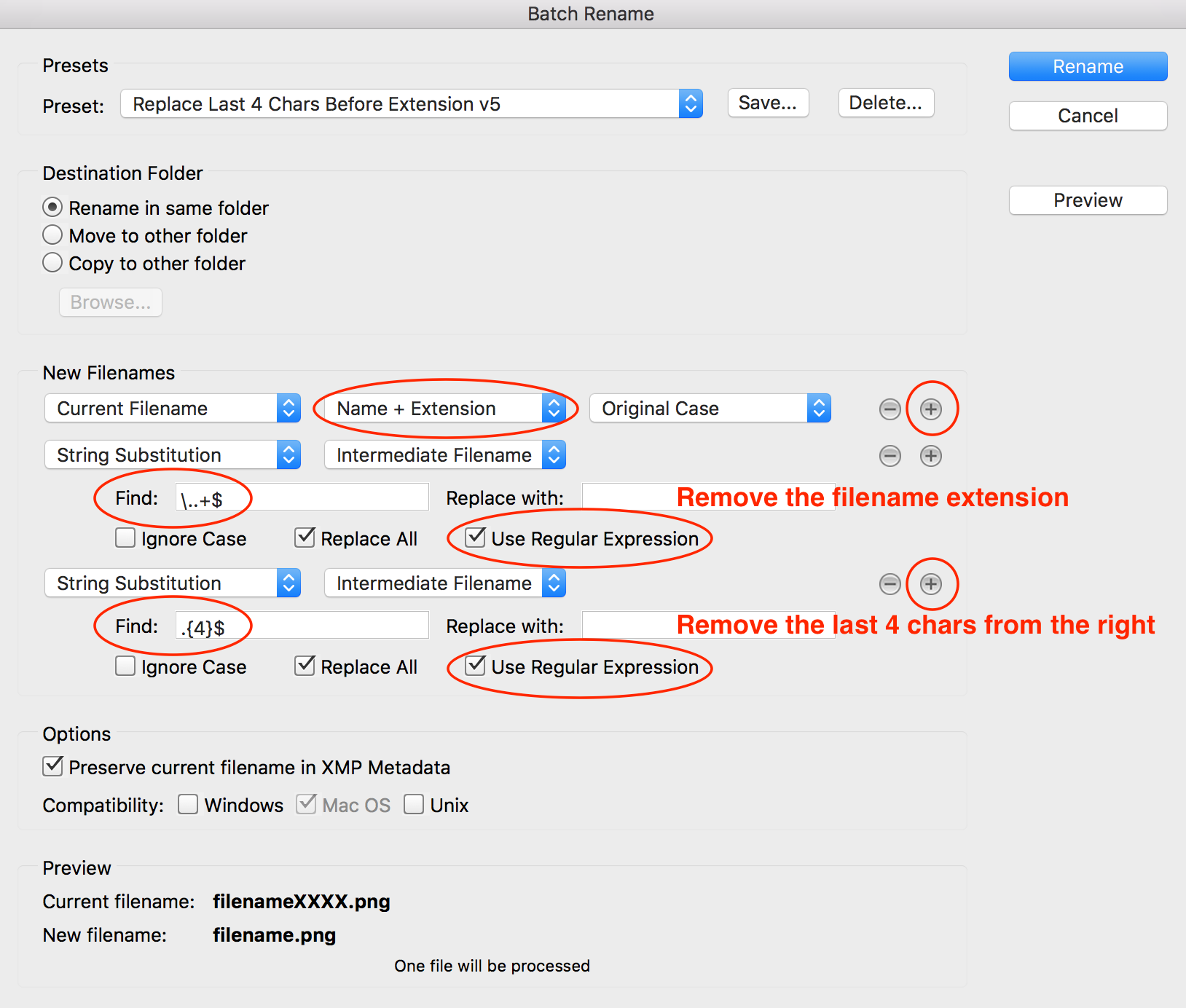- Home
- Bridge
- Discussions
- Replace last (4) characters in a filename
- Replace last (4) characters in a filename
Copy link to clipboard
Copied
Using the batch rename feature in Bridge, is there a way to replace a specific amount of characters before an extension (.png). I know there's a way to replace first 4 characters with ^.{4} But, I'm not able to figure out how to do this towards the end of file. Is this possible?
 1 Correct answer
1 Correct answer
A little bit late to the party…
I know there's a way to replace first 4 characters with ^.{4} But, I'm not able to figure out how to do this towards the end of file. Is this possible?
What you are looking for is the $ dollar symbol, which will base the regex from the end of the string, rather than the start of the string which is what the ^ caret symbol is for… However, it is of course not that easy!
Simply using .{4}$ will chop off the . period and three filename extensions, so we can’t use that:
f
...Copy link to clipboard
Copied

Copy link to clipboard
Copied
A little bit late to the party…
I know there's a way to replace first 4 characters with ^.{4} But, I'm not able to figure out how to do this towards the end of file. Is this possible?
What you are looking for is the $ dollar symbol, which will base the regex from the end of the string, rather than the start of the string which is what the ^ caret symbol is for… However, it is of course not that easy!
Simply using .{4}$ will chop off the . period and three filename extensions, so we can’t use that:
filename1234.jpg = filename1234
anothername-abc.tiff = anothername-abc.
Notice that on a 4 character extension, the dot is left, so we would need a more flexible approach, such as \..{1,} – however that does not solve the fundamental issue with the regex. So a different approach is required. The great thing about regular expressions is that there are many valid alternatives that can achieve the same result. Some are concise or verbose, some are more robust than others and may or may not “fail” with unexpected minor variations to the pattern.
Another viable regex alternative to the method outlined by SuperMerlin is:
.{4}(\..{1,})$

This valid but “less than ideal” regex works in Adobe Bridge as it has special handling of filename extensions, even though the regex is removing the last 4 characters and the filename extension, Bridge is smart enough to retain the filename extension even though it was explicitly removed by the regex. This would not work the same way in a text editor for example, as the extension would be removed.
A more robust and technically better approach would gracefully handle the filename extension (even though Bridge has a safety net with extensions)…
Find: (.+)(.{4})(\..{1,})
Replace: $1$3
The $ at the end of the regex is now superfluous in this new improved regex – as the capture groups are specifying explicit positions/patterns:

Which is a slightly different way of expressing the same regex as originally proposed by SuperMerlin, so I have come full circle with this second “refined” regex example! :]
Copy link to clipboard
Copied
Perfect! Thank you so much for this detailed description. These scripts make more sense and are more manageable.
My favorite is .{4}(\..{1,})$
Copy link to clipboard
Copied
Not a problem, other valid variations in Bridge also include:
.{4}\..+$
.{4}(\..+)$
.{4}(?:\..+)$
You may find the following regex testers helpful in working out what is going on:
www.regexr.com
www.regex101.com
Copy link to clipboard
Copied
OK, I figured out how to use the simple regex, ignoring the filename extension by using a combo of filename/name (which trims off the extension) which is then “piped” to an intermediate filename for use with the simplified regex:
.{4}$

Which is just a “GUI” based method of dealing with the file extension, which is of course also possible using a couple of regex’s chained together:

Find more inspiration, events, and resources on the new Adobe Community
Explore Now